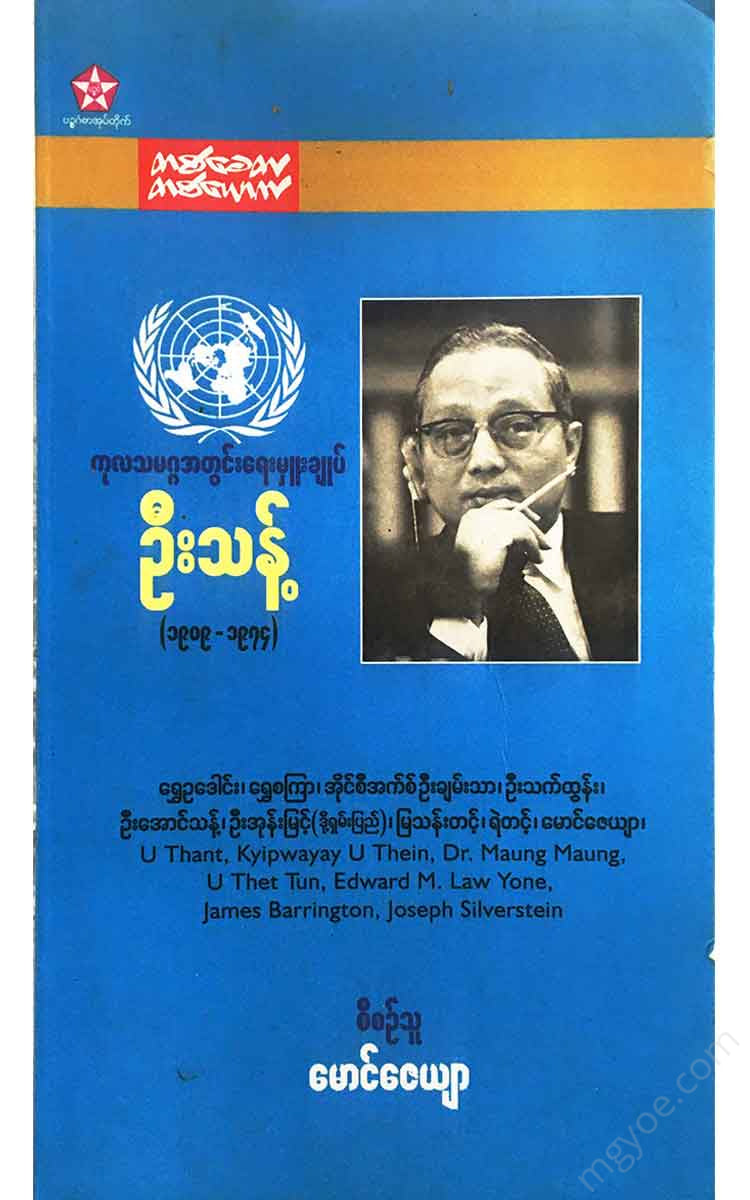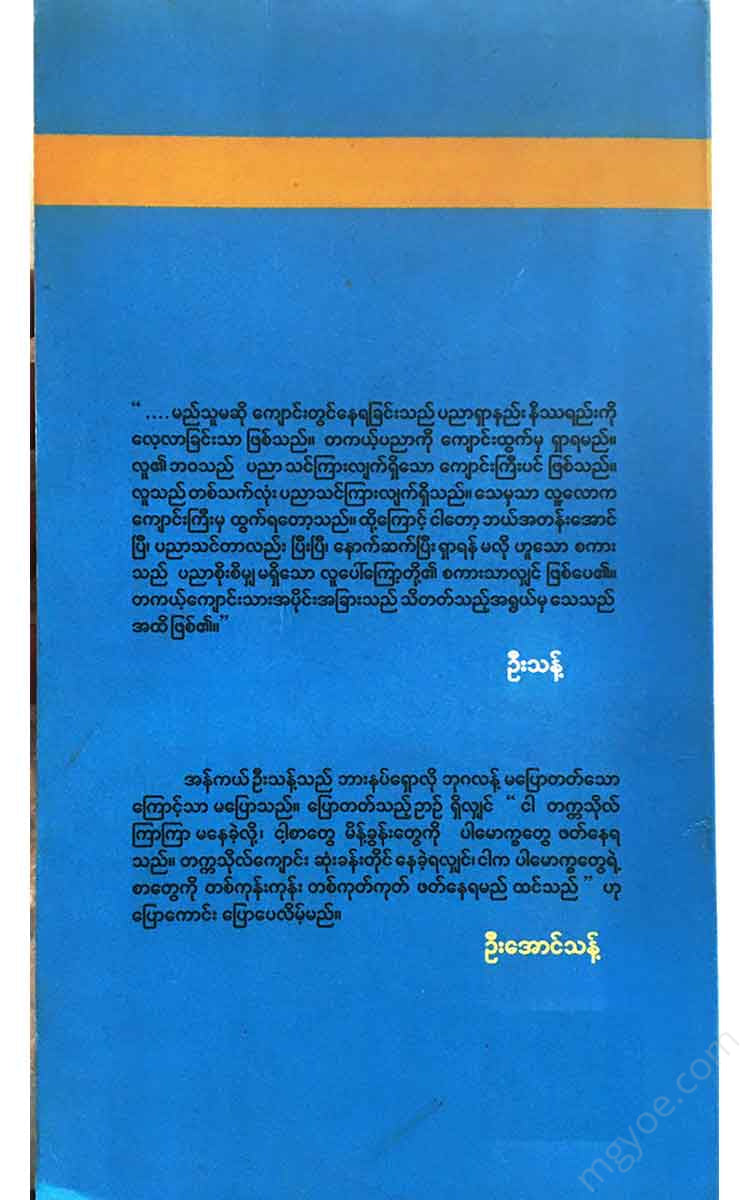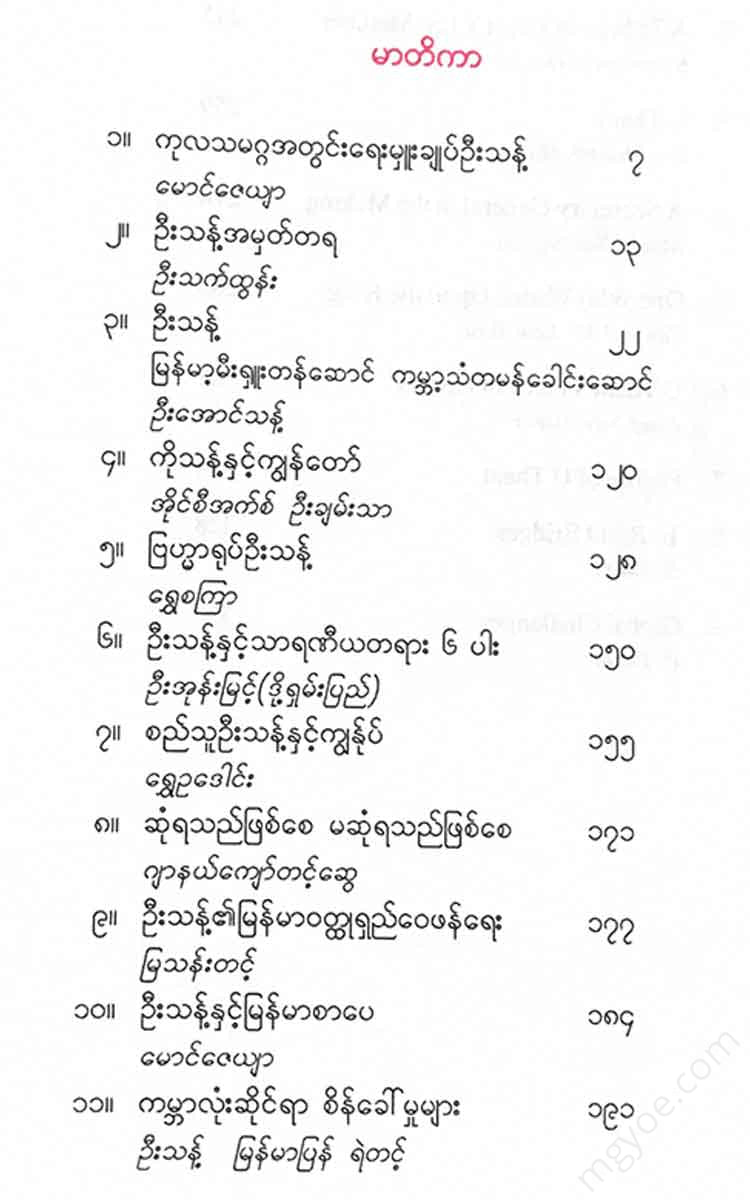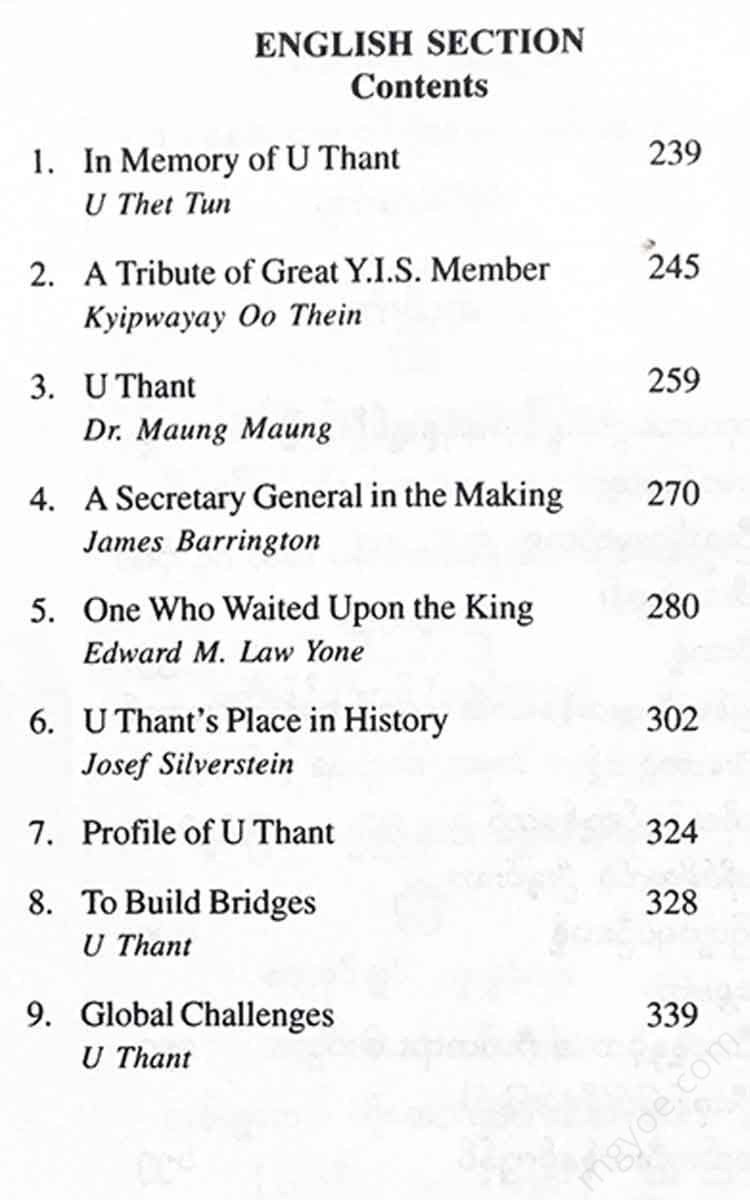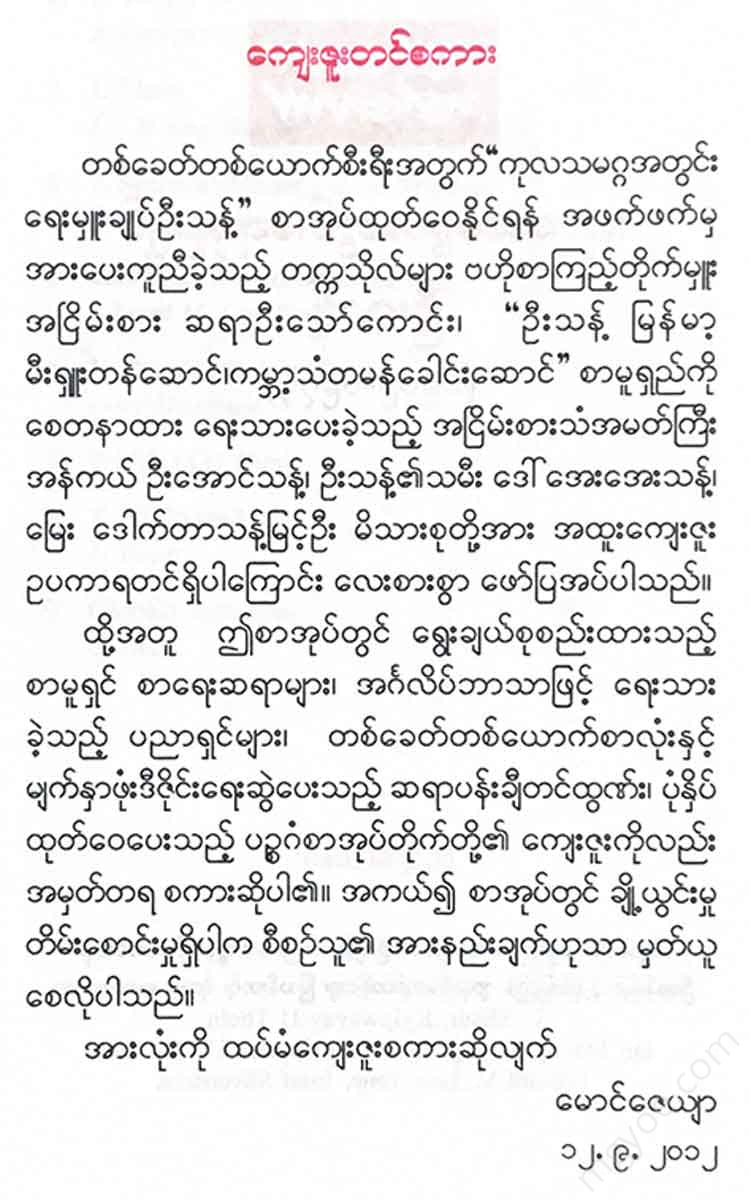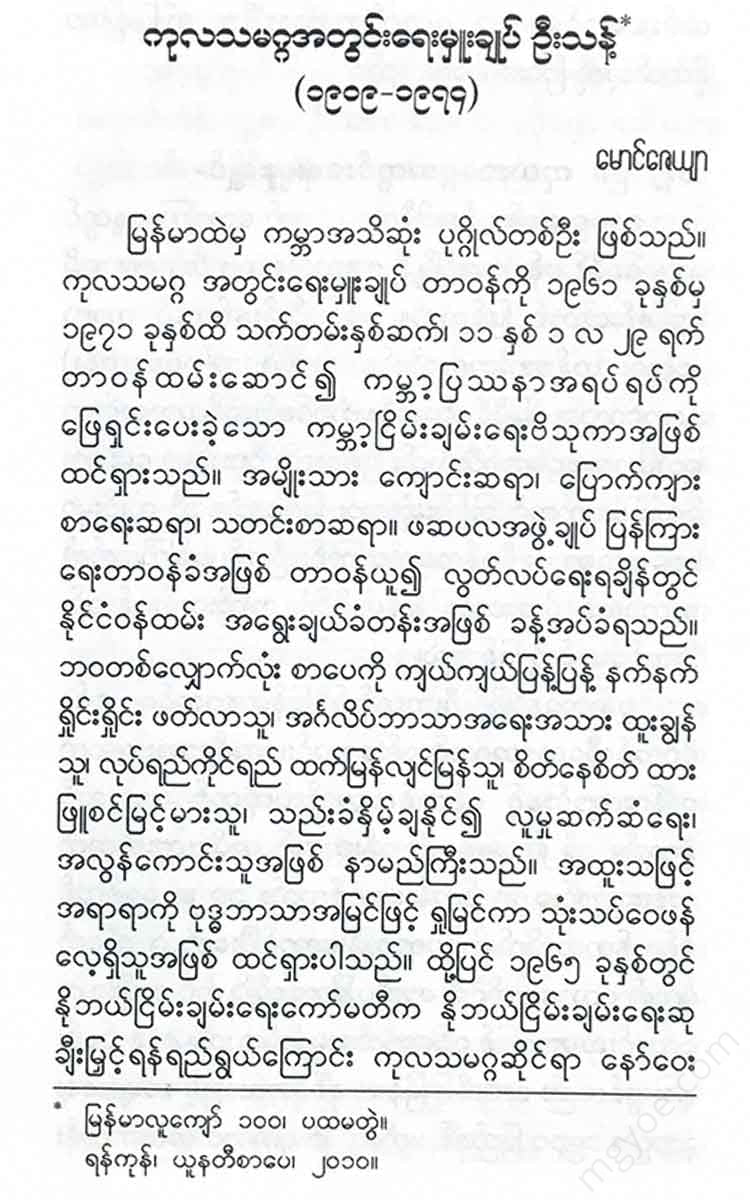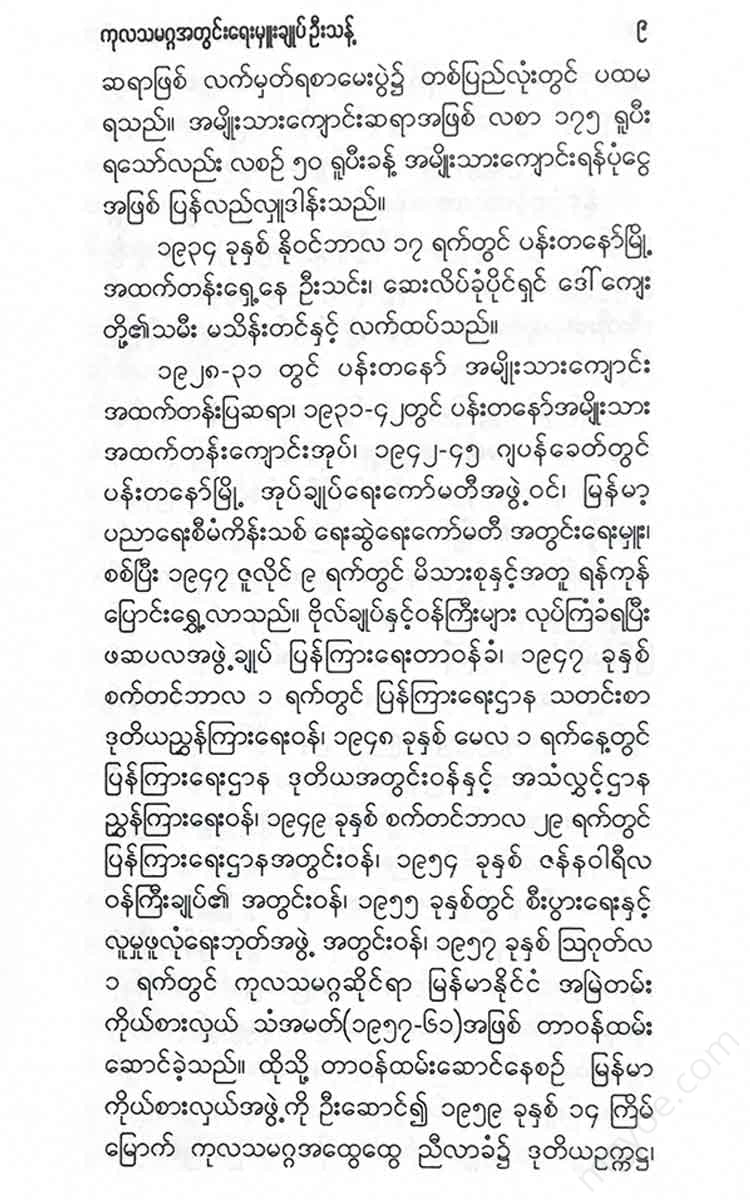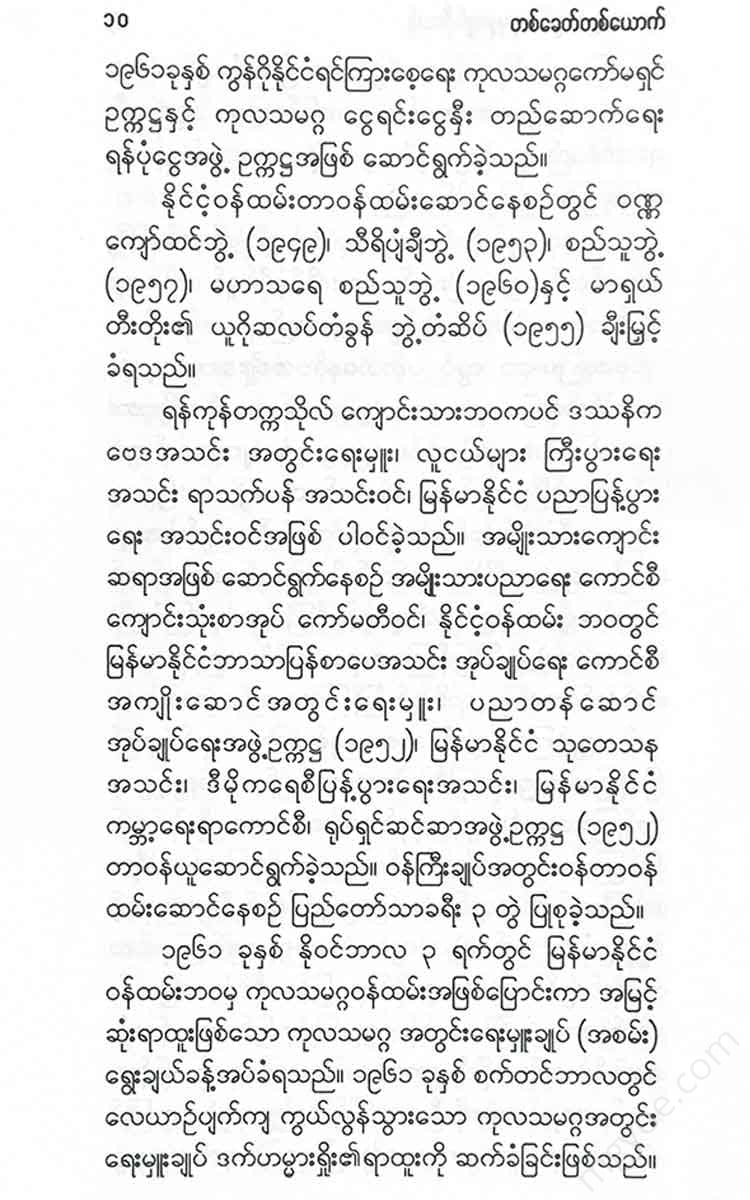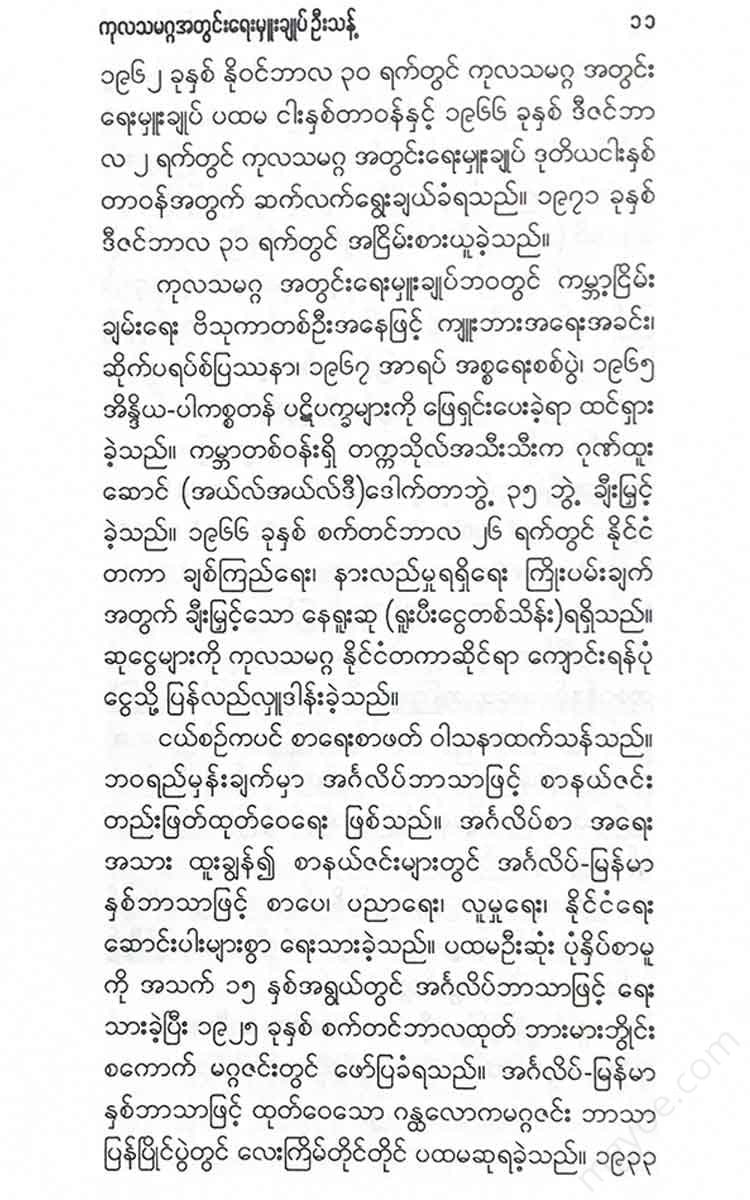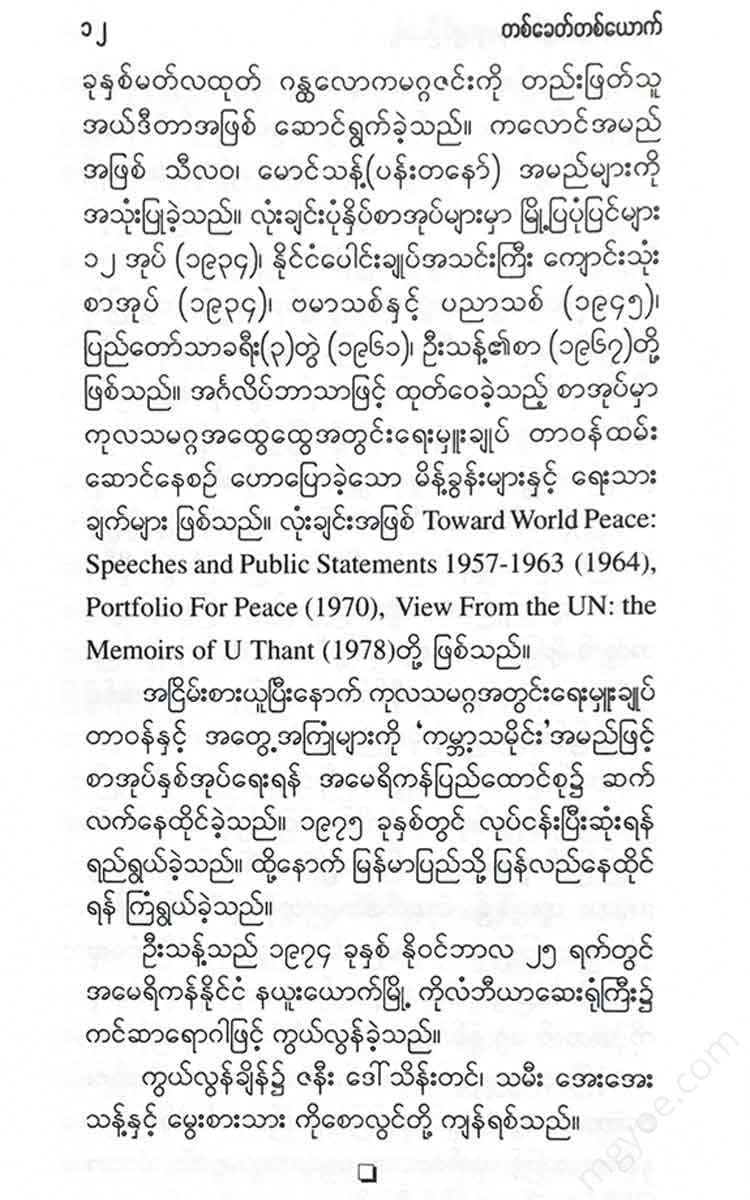Other Websites
Maung Zeyar - United Nations Secretary-General U Thant (1909-1974)
Maung Zeyar - United Nations Secretary-General U Thant (1909-1974)
Couldn't load pickup availability
Respected gentlemen
Ladies and gentlemen,
On behalf of the Myanmar fans, I would like to thank those who organized this event for giving me the opportunity to say a few memorable words. Among those who attended today's event, there were people who were closer to the U Thant family than I was. It is a great honor to have such a wonderful time.
How I first met the family was when my wife, Daw Khin Khin Ohn, and U Thant’s daughter, Daw Aye Aye Thant, met while they were studying at Yangon University in the 1950s. My wife had to stop her studies when she got married. That’s why they called me “the cradle shopkeeper.” This is because I had already earned my degree before the government gave me a second four-year business plan and awarded me the Wunna Kyaw Htin degree. I have had a lot of trouble with foreigners because I speak Burmese. For example, they read my degree as “Wunna” or “Kyo Tin”. Most of the people who have earned this degree are now in their eighties and nineties, which is the age when they suffer from such diseases. There is another place that is connected to U Thant and me. When my two sons studied mathematics in Paris and London, they studied with textbooks written by Dr. Tin Myint Oo, who was from America. These books are truly top-notch in their field. The third connection is that I served on the delegation led by U Thant at the United Nations General Assembly in 1958.
At that time, Myanmar was called Burma. The Burmese delegation was in the forefront and often chaired the Asian group. The Asian group of the General Assembly held group-level meetings in New York and other European cities, such as Paris. The first in the Asian group was Afghanistan, but because it did not arrive on time for the meeting, the Burmese delegation was often elected chairman. Throughout the Cold War, Pakistan was allied with China and India with Russia. So, the Chinese and Pakistani delegations, knowing that the Burma delegation was impartial, always supported the extension of the Burma chairmanship. The Indian delegation did the same. They wanted the Burma chairmanship. This was my experience at the UN and UNESCO. Part of this was because of U Thant. He was a very calm and composed person on the outside.
It is interesting to know how U Thant, then the Permanent Secretary of the U Nu government, ended up in the Permanent Mission of Burma to the United Nations. One day, Prime Minister U Nu saw his friend U Thant looking pale and sad and asked him: “Ko Thant, you don’t look well, why?” U Thant looked straight at U Nu and said: “The problem is that you keep giving me one task after another, and I can’t do much.” It was then that U Nu realized that as a politician, he was putting more pressure on his people than they could handle. So he immediately apologized. “Oh, I’m sorry, Ko Thant. You’re going abroad on a diplomatic mission and taking a break.” U Thant went there because there was a vacancy in New York at the time. I wonder if he thought that the job of UN representative was a job where people who needed a break could go and rest.
In 1958, when politicians were busy preparing for the upcoming elections, I was a member of the UN General Assembly’s expert delegation. While I was at the UN, I once said that I wanted to make a new suit, and my friend Jimmy Pohtin, the deputy head of the delegation, took me to his tailor’s shop where U Thant used to make clothes. The shop was a high-end boutique on Fifth Avenue, where top diplomats used to come. It was even better than the kind of boutiques where bankers used to come. I also learned from my wallet that U Thant liked good clothes. Another thing is that when I went to one of his receptions, he used to take photos with each guest and send them to the people involved. This is a very good Japanese custom.
In my opinion, the most important step to reach the highest position in the UN is the close friendship between the US Permanent Representative to the United Nations, Adlai Stevenson. Stevenson ran for president twice against Eisenhower. He lost both times and was appointed as the UN Ambassador by the current President, who supported him. The Soviet Union was already friendly with U Thant. This was because the Soviets were close friends with Prime Minister U Nu, who was very close to him. There were many other third-party candidates for the position of Secretary-General. But Stevenson also admired U Thant's integrity and intelligence.
The next time U Thant and I met was at the UNCTAD conference in Geneva in 1964. There, we were working with Argentine economist Roy Previs on the implementation of the Asia-Africa Accord (also known as the Burma Accord). U Thant came and congratulated us. UNCTAD was born. The Burmese delegation was led by the then Ambassador, Brigadier General Maung Maung, and U Thant’s younger brother, U Tin Maung, was also there. He was the Permanent Secretary for Trade. In 1966, I was with the delegation, which included the Minister of Foreign Affairs and Planning, and I had met U Thant’s family once. When my wife was hospitalized, U Thant deliberately invited me to his house and let me watch a movie with him. We watched a movie at the UN headquarters in Turtle Bay. It was a way to relax from the day’s hard work. As I sat in the car driven by U Thant’s Irish bodyguard, I learned about his views on his mentor. At that time, U Thant was just starting his second term. He would have been greeted and invited by many UN ambassadors from other countries. His bodyguard said, “I went to meet him in his office early in the evening and he looked very tired and worn out. I looked at him and felt bad. I wondered how he would manage to cope with such a stressful job for the next five years.” But he was able to survive. A man like U Thant, who lived a simple life, did not have many obsessions. Cigar smoking was his rare obsession. U Thant’s addiction to cigars helped him learn the strange things about the workings of the UN. During U Thant’s time, instead of the work flowing from committees to the General Assembly, the Assembly would flow back to the committees. Later, it was said that this happened because U Thant was not allowed to smoke in the General Assembly Hall, so he took some of the work back to the committee offices where he could smoke.
I also felt responsible for this without realizing it. In 1958, when I was a Burmese delegate to the Second (Economic) Committee, I had opposed the OPAS project. I had pointed out that if the project was not handled properly, it would be reminiscent of colonialism. My discussion at that time must have set off alarm bells in the UN office. So the Secretary-General, Dekham Marsh, came down to the Economic Committee and explained the project himself. At that time, U Thant, who was the head of the delegation, must have been unaware of it and made the explanation.
At the end of his second term as Secretary-General, representatives from many countries urged U Thant to run for a third term, saying that their governments would support him. However, U Thant’s home country, Burma, did not support his re-election. U Thant had sacrificed his university education for his younger siblings since he was a child. Now, he politely declined the calls for him to run again and retired. He devoted the rest of his time to writing a book of his life’s memories. U Thant was a great fan of the writer Arthur Malaw’s book “A View from the Bridge,” so he named his book “A View from the United Nations.” After all, isn’t the United Nations a bridge that connects countries? In his second book, he intended to write a portrait of the world’s great personalities he had met. His health deteriorated, so he was unable to finish the book. If he had been able to finish it, it would have been much more interesting. U Thant's journalistic talent seems to have been inherited by his grandson, Dr. Thant Myint U. Dr. Thant Myint U has even written two history books so far.
I consider myself an amateur historian. If U Thant's achievements were to be written as a historical account, the first thing I would write about would be his role as a defender of world peace during the Cuban Missile Crisis. The second thing would be his role as a defender of the rights of third world countries in the United Nations.
